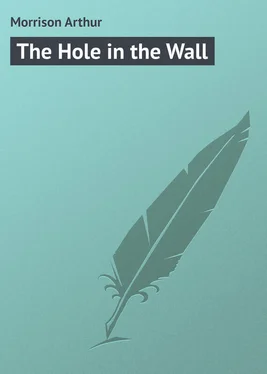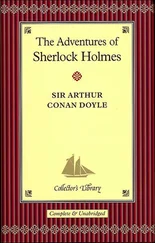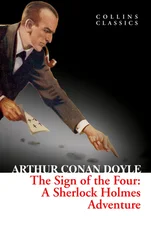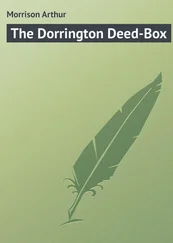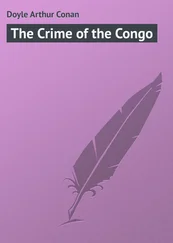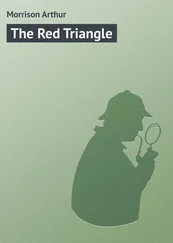Arthur Morrison - The Hole in the Wall
Здесь есть возможность читать онлайн «Arthur Morrison - The Hole in the Wall» — ознакомительный отрывок электронной книги совершенно бесплатно, а после прочтения отрывка купить полную версию. В некоторых случаях можно слушать аудио, скачать через торрент в формате fb2 и присутствует краткое содержание. Жанр: foreign_prose, на английском языке. Описание произведения, (предисловие) а так же отзывы посетителей доступны на портале библиотеки ЛибКат.
- Название:The Hole in the Wall
- Автор:
- Жанр:
- Год:неизвестен
- ISBN:нет данных
- Рейтинг книги:5 / 5. Голосов: 1
-
Избранное:Добавить в избранное
- Отзывы:
-
Ваша оценка:
- 100
- 1
- 2
- 3
- 4
- 5
The Hole in the Wall: краткое содержание, описание и аннотация
Предлагаем к чтению аннотацию, описание, краткое содержание или предисловие (зависит от того, что написал сам автор книги «The Hole in the Wall»). Если вы не нашли необходимую информацию о книге — напишите в комментариях, мы постараемся отыскать её.
The Hole in the Wall — читать онлайн ознакомительный отрывок
Ниже представлен текст книги, разбитый по страницам. Система сохранения места последней прочитанной страницы, позволяет с удобством читать онлайн бесплатно книгу «The Hole in the Wall», без необходимости каждый раз заново искать на чём Вы остановились. Поставьте закладку, и сможете в любой момент перейти на страницу, на которой закончили чтение.
Интервал:
Закладка:
A noise of trampling and singing without neared the door, and with a bang and a stagger a party of fresh customers burst in and swept Mr. Cripps out of his exposition. Two were sun-browned sailors, shouting and jovial, but the rest, men and women, sober and villainous in their mock jollity, were land-sharks plain to see. The foremost sailor drove against Mr. Cripps, and having almost knocked him down, took him by the shoulders and involved him in his flounderings; apologising, meanwhile, at the top of his voice, and demanding to know what Mr. Cripps would drink. Whereupon Grandfather Nat sent me back to the bar-parlour and the little ship, and addressed himself to business and the order of the bar.
And so he was occupied for the most of the evening. Sometimes he sat with me and taught me the spars and rigging of the model, sometimes I peeped through the glass at the business of the house. The bar remained pretty full throughout the evening, in its main part, and my grandfather ruled its frequenters with a strong voice and an iron hand.
But there was one little space partitioned off, as it might be for the better company: which space was nearly always empty. Into this quieter compartment I saw a man come, rather late in the evening, furtive and a little flustered. He was an ugly ruffian with a broken nose; and he was noticeable as being the one man I had seen in my grandfather's house who had no marks of seafaring or riverside life about him, but seemed merely an ordinary London blackguard from some unmaritime neighbourhood. He beckoned silently to Grandfather Nat, who walked across and conferred with him. Presently my grandfather left the counter and came into the bar-parlour. He had something in his closed hand, which he carried to the lamp to examine, so that I could see it was a silver watch; while the furtive man waited expectantly in the little compartment. The watch interested me, for the inward part swung clean out from the case, and hung by a single hinge, in a way I had never seen before. I noticed, also, that a large capital letter M was engraved on the back.
Grandfather Nat shut the watch and strode into the bar.
"Here you are," he said aloud, handing it to the broken-nosed man. "Here you are. It seems all right – good enough watch, I should say."
The man was plainly disconcerted – frightened, indeed – by this public observation; and answered with an eager whisper.
"What?" my grandfather replied, louder than ever; "want me to buy it? Not me. This ain't a pawnshop. I don't want a watch; an' if I did, how do I know where you got it?"
Much discomposed by this rebuff, the fellow hurried off. Whereupon I was surprised to see the pale man rise from the corner of the bar, put his drink, still untasted, in a safe place on the counter, beyond the edge of the partition, and hurry out also. Cogitating this matter in my grandfather's arm-chair, presently I fell asleep.
What woke me at length was the loud voice of Grandfather Nat, and I found that it was late, and he was clearing the bar before shutting up. I rubbed my eyes and looked out, and was interested to see that the pale man had come back, and was now swallowing his drink at last before going out after the rest. Whereat I turned again, drowsily enough, to the model ship.
But a little later, when Grandfather Nat and I were at supper in the bar-parlour, and I was dropping to sleep again, I was amazed to see my grandfather pull the broken-nosed man's watch out of his pocket and put it in a tin cash-box. At that I rubbed my eyes, and opened them so wide on the cash-box, that Grandfather Nat said, "Hullo, Stevy! Woke up with a jump? Time you was in bed."
CHAPTER V
IN THE HIGHWAY
The Hole in the Wall being closed, its customers went their several ways; the sailors, shouting and singing, drifting off with their retinue along Wapping Wall toward Ratcliff; Mr. Cripps, fuller than usual of free drinks – for the sailors had come a long voyage and were proportionally liberal – scuffling off, steadily enough, on the way that led to Limehouse; for Mr. Cripps had drunk too much and too long ever to be noticeably drunk. And last of all, when the most undecided of the stragglers from Captain Nat Kemp's bar had vanished one way or another, the pale, quiet man moved out from the shadow and went in the wake of the noisy sailors.
The night was dark, and the streets. The lamps were few and feeble, and angles, alleys and entries were shapes of blackness that seemed more solid than the walls about them. But instead of the silence that consorts with gloom, the air was racked with human sounds; sounds of quarrels, scuffles, and brawls, far and near, breaking out fitfully amid the general buzz and whoop of discordant singing that came from all Wapping and Ratcliff where revellers rolled into the open.
A stone's throw on the pale man's way was a swing bridge with a lock by its side, spanning the channel that joined two dock-basins. The pale man, passing along in the shadow of the footpath, stopped in an angle. Three policemen were coming over the bridge in company – they went in threes in these parts – and the pale man, who never made closer acquaintance with the police than he could help, slunk down by the bridge-foot, as though designing to make the crossing by way of the narrow lock; no safe passage in the dark. But he thought better of it, and went by the bridge, as soon as the policemen had passed.
A little farther and he was in Ratcliff Highway, where it joined with Shadwell High Street, and just before him stood Paddy's Goose. The house was known by that name far beyond the neighbourhood, among people who were unaware that the actual painted sign was the White Swan. Paddy's Goose was still open, for its doors never closed till one; though there were a few houses later even than this, where, though the bars were cleared and closed at one, in accordance with Act of Parliament, the doors swung wide again ten minutes later. There was still dancing within at Paddy's Goose, and the squeak of fiddles and the thump of feet were plain to hear. The pale man passed on into the dark beyond its lights, and soon the black mouth of Blue Gate stood on his right.
Blue Gate gave its part to the night's noises, and more; for a sudden burst of loud screams – a woman's – rent the air from its innermost deeps; screams which affected the pale man not at all, nor any other passenger; for it might be murder or it might be drink, or sudden rage or fear, or a quarrel; and whatever it might be was common enough in Blue Gate.
Paddy's Goose had no monopoly of music, and the common plenty of street fiddlers was the greater as the early houses closed. Scarce eighty yards from Blue Gate stood Blind George, fiddling his hardest for a party dancing in the roadway. Many were looking on, drunk or sober, with approving shouts; and every face was ghastly phosphorescent in the glare of a ship's blue-light that a noisy negro flourished among the dancers. Close by, a woman and a man were quarrelling in the middle of a group; but the matter had no attention till of a sudden it sprang into a fight, and the man and another were punching and wrestling in a heap, bare to the waist. At this the crowd turned from the dancers, and the negro ran yelping to shed his deathly light on the new scene.
The crowd howled and scrambled, and a drunken sailor fell in the mud. Quick at the chance, a ruffian took him under the armpits and dragged him from among the trampling feet to a near entry, out of the glare. There he propped his prey, with many friendly words, and dived among his pockets. The sailor was dazed, and made no difficulty; till the thief got to the end of the search in a trouser pocket, and thence pulled a handful of silver. With that the victim awoke to some sense of affairs, and made a move to rise; but the other sprang up and laid him over with a kick on the head, just as the pale man came along. The thief made off, leaving a few shillings and sixpences on the ground, which the pale man instantly gathered up. He looked from the money to the man, who lay insensible, with blood about his ear; and then from the man to the money. Then he stuffed some few of the shillings into the sailor's nearest pocket and went off with the rest.
Читать дальшеИнтервал:
Закладка:
Похожие книги на «The Hole in the Wall»
Представляем Вашему вниманию похожие книги на «The Hole in the Wall» списком для выбора. Мы отобрали схожую по названию и смыслу литературу в надежде предоставить читателям больше вариантов отыскать новые, интересные, ещё непрочитанные произведения.
Обсуждение, отзывы о книге «The Hole in the Wall» и просто собственные мнения читателей. Оставьте ваши комментарии, напишите, что Вы думаете о произведении, его смысле или главных героях. Укажите что конкретно понравилось, а что нет, и почему Вы так считаете.
